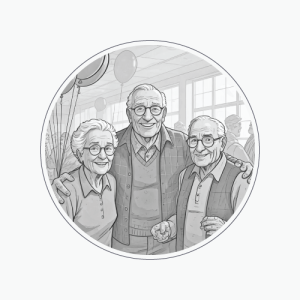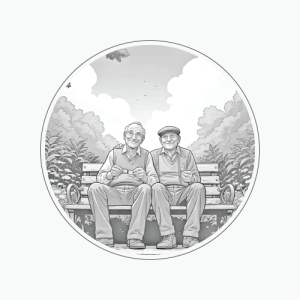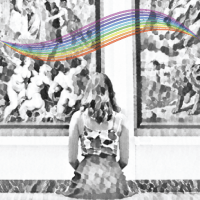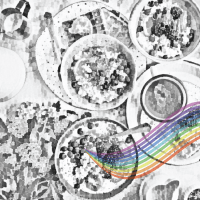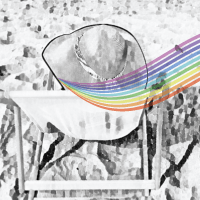
Understanding the challenges
Elder LGBTQIA+ Care
- Atilla Tiriyaki
- Average Reading Time: 9 minutes
- Community, Elder Community, Special Groups
- articles, atillat, elder
Unfortunately, no one can escape the ageing process and the reality that we will all have to succumb to needing help and assistance at some point in our lives. Of the world’s population, it is estimated that 9% are is aged 65 or older, with many from within that age group from the baby boomer or lucky few generations. With medical advancements, the slowing of the birth rate and an increased life expectancy, more people live longer than ever before. People within the over 65 age group are now part of the fastest-growing age group, with the numbers within that age bracket set to double by 2050.
Many people at retirement age and those requiring care have likely lived through a significant period of LGBTQIA+ history. A period that has directly impacted the lives of so many from within the global community. Some community members, now considered elderly, were directly involved in events and periods that sparked a global movement. A movement that resulted in the amendments to the laws, subsequently improving so many people’s lives and rights across the globe.
Today, It is hard to imagine; that the majority of those brave individuals who took part in the Stonewall riots in 1969 would now be aged 65 and over. Those same people are now either in care or need some form of assistance. Many wake up to the reality that though elderly care needs are universal, many within the LGBTQIA+ community will have to face and overcome specific and unique challenges.
In 2021, there are still many obstacles and issues relating to long-term care. Things have been slowly changing around the improvement of physical facilities, services and the need for greater oversight. Even with all of the known issues, many good care providers and companies still provide their customers with good quality services. Typically, offering the best possible solutions and services within their means, giving those in their charge the respect and dignity they rightly deserve. Though many challenges are universal, some care providers are better prepared and adept at handling them. Problems occur, no matter how good the care provider is. So let us begin by looking at some of the shared care issues that everyone faces, regardless of sexual orientation or gender identity.
Over the years, numerous investigative journalists have exposed problems and issues within the care industry. Many stories highlighted alarming cases where vulnerable people were forced to live in horrendous conditions. Some were subjected to continual abuse and grossly lacking services relating to individual care needs. Research carried out by the UK Charity, Age UK (https://www.ageuk.org.uk/globalassets/age-uk/documents/reports-and-publications/later_life_uk_factsheet.pdf) and the World Health Organisation – WHO (https://www.who.int/news-room/fact-sheets/detail/elder-abuse) highlights some of these alarming themes:- Abuse – which can range from general neglect to sexual abuse. It is estimated that one in six people over the age of 60 has experienced abuse in the community setting during the past year (Age UK). The level and scale of abuse is also predicted to increase as countries around the world are seeing rapidly ageing communities
- Exploitation – typically financial exploitation, praying on the vulnerable and inflating essential fees relating to care. It is estimated that in the UK alone, 2 million (16%) of those at retirement are living in poverty (DWP, 2019)
- Isolation – lack of facilities and activities to get residents and elderly clients engaged and involved. It is estimated that 17% of older people are in contact with family, friends and neighbours less than once a week, and 11% are receiving visitors less than once a month (Age UK, 2015)
The issues highlighted are just a small selection of those faced by the elderly, all of which affect everyone, regardless of their sexual orientation or gender identity. The quality of the care provided is also usually dependent on the funding available, the availability of experienced staff within the local community, and the legal protections for the vulnerable within any given country. Governments worldwide are lacking concerning elder care, and many could be doing a lot more, as significant changes and improvements need to take place for all those needing help and assistance. Intervention is urgently required for those with little or no money available to fund a reasonable level of care and those alone and afraid to ask for help for fear of discrimination.
There are two main areas consistently highlighted from the research and studies readily available to the general public. The first relates to the need to implement greater oversight. The second is to increase the protection for those most vulnerable, especially those alone or with little to no family, to speak up for them.
The majority of those within the LGBTQIA+ community and currently receiving care will likely have been born before 1956. Born into a period of history in which communities and the wider society was less accepting of gender identity or sexual orientation. Though many fought hard for equal rights and legal protection, most will have to face difficult decisions later on in life.
A choice whether to potentially suffer discrimination or hide and suppress who they are, something they spent a lifetime coming to terms with and accepting. LGBTQIA+ long-term care research is limited; however, many specialist charities have highlighted the challenges faced by the community. Over the years, there have been many more specialist non-profit organisations speaking up for and protecting the rights of those elderly LGBTQIA+ community members. However, given the growing number of those needing care, there are still insufficient advocacy groups worldwide. The actual scale and extent of the problems many LGBTQIA+ individuals face it not fully understood; from the available research, some key facts emerged:- Many LGBT individuals would hide their gender identity or sexual orientation to receive the care they need
- LGBT are more inclined to remain at home than enter residential care facilities for fear of exclusion, harassment and isolation
- LGBT members are more likely to suffer some form of abuse or being financially exploited compared to their heterosexual peers
Those already receiving care or in need of assistance face an increased risk of neglect due to how they identify. The problem often stems from a caregivers’ own beliefs or views or the lack of family members checking in on their well-being. The concerns are highlighted in the research carried out by the UK Charity Age UK (https://www.ageuk.org.uk/globalassets/age-uk/documents/reports-and-publications/later_life_uk_factsheet.pdf), in which:
- Having spent much of their early adult years in social, political, and medical environments in which homosexuality was illegal or considered a mental illness, some older LGBT adults conceal or avoid disclosing their sexual identity for fear of discrimination (CPA, 2016)
- Although lesbian, gay, bisexual, and transgender people are often grouped together, they are diverse and have varied and disparate needs (CPA, 2016)
- LGBT people face various barriers when accessing services; these can include discrimination, inappropriate questions, and curiosity. These barriers can prevent fair and equal treatment in health and social care settings (GOV UK, 2019)
Those elderly individuals in need of care come from a period when identifying as LGBT was difficult, even illegal. Most were faced with a tough decision that, in many cases, resulted in individuals being disowned or ignored by those they loved or closest to them. Even against all those odds, these brave individuals decided to live their true ad authentic lives. Only years later to be forced into either experiencing discrimination by remaining open or suppressing who they are to fit in. No one should have to decide, especially in terms of getting the much-needed help and care versus the risk to their mental health and well-being.
Over the years, several non-profit organisations have been advocating for elder community member rights. As a result, there have been some positive developments. Groups and companies have come forward to look at the challenges faced by the LGBTQIA+ community, resulting in solutions that help those receiving care and assistance. Tailored solutions are being developed in the UK, as work is currently underway for the first LGBT housing association. Some solutions already exist in the United States of America and parts of Europe, where there are a small number of dedicated LGBTQIA+ residential homes, villages, and services.
For those in conventional care settings, anti-discrimination laws offer some protection. However, those most vulnerable will often fear losing access to critical care and services rather than complaining or looking for alternatives. There is no one solution to fix all of the problems relating to eldercare. Tailored, exclusive facilities and services, though positive, will likely create different challenges and issues. Given the growing number of people in or close to retirement, the speed of bringing these types of solutions to the market is a significant challenge. LGBTQIA+ tailored solutions will help; however, the reality is that more inclusive facilities and services are needed in the short term. Services and facilities that welcome all and have a clear code of conduct are necessary. A set of enforced principles ensures that all will be treated with the same level of respect and given the same service and care, regardless of gender or sexual orientation.
Elderly care is not exclusively an LGBTQIA+ community issue; however, different challenges and obstacles exist for those within the community when seeking care and assistance. The level of care and range of services available will vary by country, and so will the attitudes towards care. Some countries rely on family members to become carers for their elderly relatives, which is not ideal for many within the LGBTQIA+ community, especially those alone or with no family. With no formal arrangements in place, the situation will likely expose these vulnerable groups to financial exploitation or inadequate care and support. Governments need to address the ageing populations and future care requirements. However, existing care providers can make simple changes to their business models to become more inclusive.
Eldercare is a problem and one that should concern everyone, regardless of age. The main challenge is ensuring that everyone is treated with respect and receive quality care and assistance. We all must remember that someday in the future, we will likely need some form of support. When we need it most, the hope is, we too are treated with respect. That we all receive the level of care, support, and assistance, regardless of our gender, how we identify, or our sexual orientation.
For any existing care providers or those businesses looking to develop care solutions, the Gayther article Inclusive Care: Tips for providing care for the elder LGBTQIA+ community (https://gayther.com/inclusive-care) offers useful tips and advice.





















